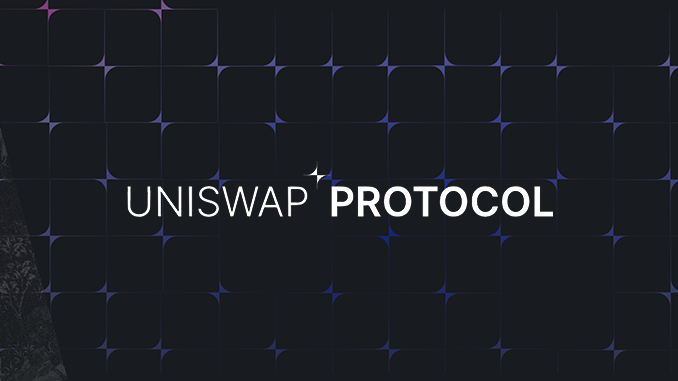
Uniswap is the most important decentralized crypto exchange (DEX) in the world. Now it becomes known: Uniswap blocks at least 253 user addresses, there is talk of “censorship”. The case raises questions about DeFi in general.
Decentralized Finances (DeFi) have become one of the most important growth sectors of the crypto industry over the last few years. At the largest global decentralized crypto exchange Uniswap (UNI), daily turnover is measured at over $1 billion, and the platform is a DeFi heavyweight. Now, on Twitter, a developer under the name Banteg is drawing attention to the fact that Uniswap has had at least 253 user addresses blocked in the last four months. But how can this be, when a DEX is actually organized in a decentralized manner and such interventions should therefore be impossible?
Banteg shows internal documents in its leak on Uniswap. Uniswap Labs has been cooperating with TRM Labs since spring and had also published a blog article on this. According to this, the cooperation was intended to automate and continuously check whether addresses of Uniswap users appear on sanctions lists. This was also intended as a forward defense against accusations of possible aiding and abetting money laundering, terrorist financing and other illegal activities. After all, problems with the U.S. Securities and Exchange Commission (SEC) in 2021 had already made it clear that authorities would prosecute the team behind Uniswap in case of doubt.
Uniswap now measures seven risk factors and concludes two risk levels. The blockings then result from this assessment. One such risk factor is when crypto flows from mixers to Uniswap. Here, the regulatory intervention against Tornado Cash, a major Ethereum mixer, has recently made headlines. The only thing is, individual investors sometimes have no way of knowing if their ETH may have gone through Tornado Cash at some point in the past. Banteg gives examples of blocked addresses that pretty much occupy all the risk factors – and comments such broad combinations of illicit activity in one person is unlikely after all. He also lists on 30 ENS addresses that are affected by the blocks. ENS addresses are individual, easy-to-remember addresses at the Ethereum Name Service and therefore rather not a method to hide illegal activity.
Bottom line: the Uniswap case shows that DeFi and decentralization are not always one in the same
Technically savvy users can probably look for alternatives to Uniswap or avoid locks there by bridging directly to the interface. But the typical investor chooses Uniswap precisely because of ease of use via the central website, and thus in effect becomes a customer of Uniswap Labs. It is understandable that the Uniswap Labs team wants to protect itself from prosecution. It is also likely that unauthorized or questionable blocks at Uniswap will be manually removed again. But the situation also clearly demonstrates that a decentralized code loses its invulnerability at the point where developers and other personnel come into play and can intervene. In the future, DeFi will have to take a closer look at how a product was built and whether it can fulfill the promise of decentralization even under pressure.

Leave a Reply